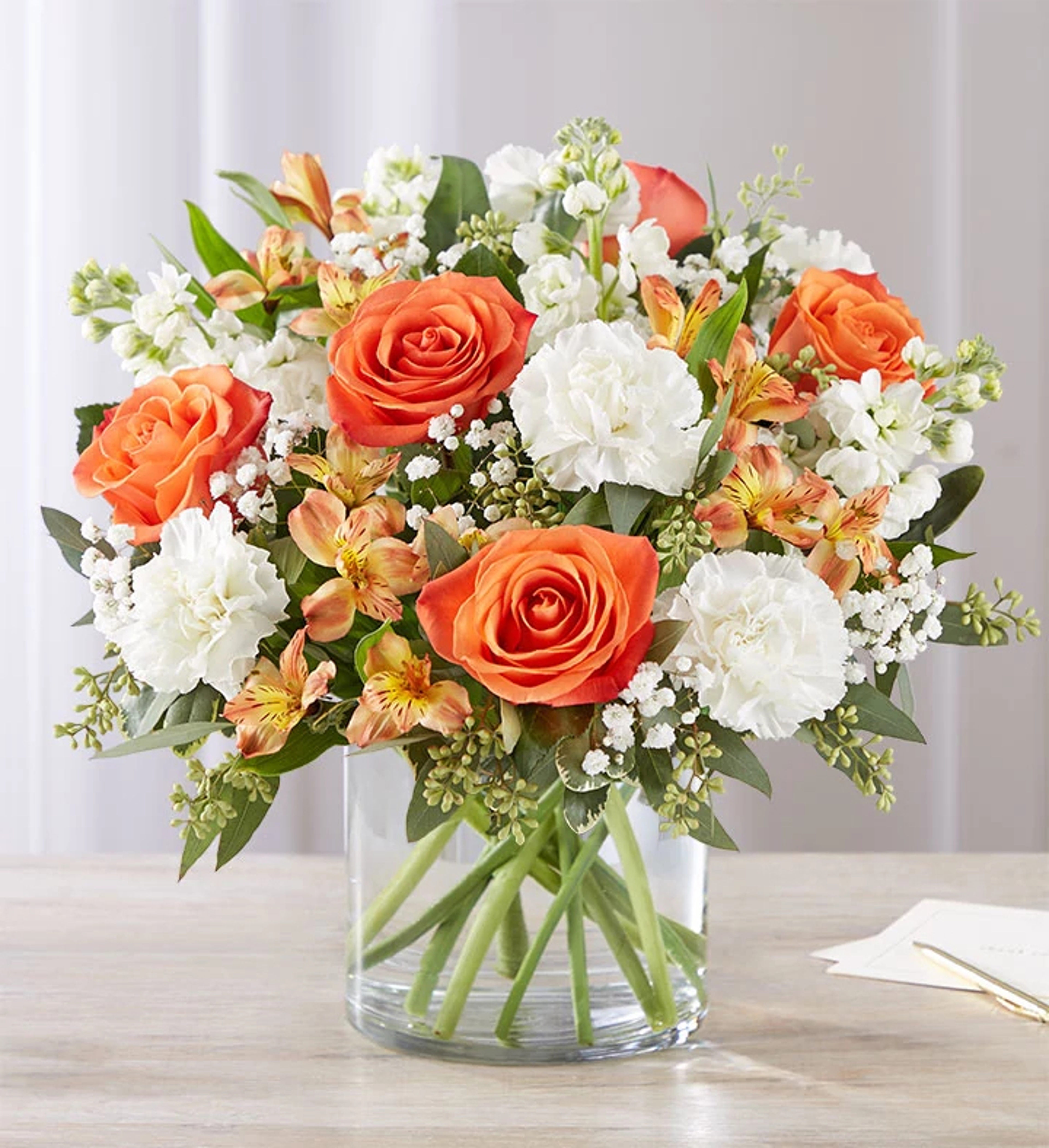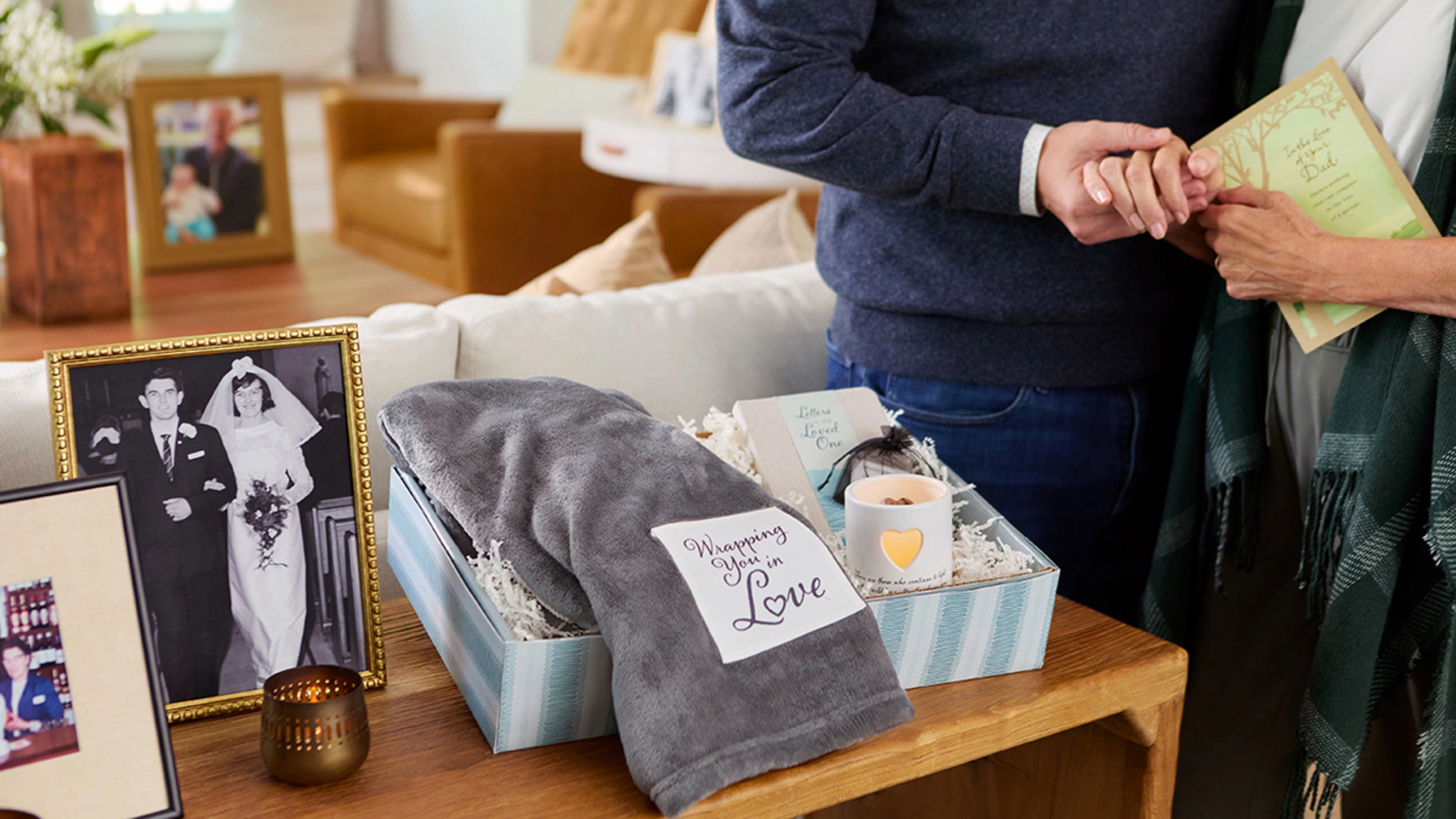Sympathy Gifts: Thoughtful Ways to Show You Care
From grief groceries to personalized keepsakes, share your sympathies with heartfelt gifts.
Mar 03, 2025
What are sympathy gifts and why are they given?

Sympathy gifts, also known as condolence or bereavement gifts, are thoughtful gestures offered to individuals experiencing grief or hard times. These gifts act as a tangible expression of care and empathy, providing comfort when words may fall short. They symbolize the giver's support, and serve as a reminder of love and compassion. For inspiration, explore these feel-better gifts that can bring solace and warmth to the recipient.
These gifts can vary widely, from traditional items like flowers and food to personalized keepsakes such as memorial jewelry or custom tribute books.
When is it appropriate to give a sympathy gift?
Sympathy gifts are appropriate as soon as you learn of someone's loss or during any period of mourning. While they are most commonly associated with the death of a loved one, they can also be given for other hardships, such as the loss of a pet or job, or a significant life change. The timing of the gift should reflect your intention to provide comfort and support when it is most needed. Learning about sympathy gift etiquette can help ensure your gesture is both thoughtful and timely.
Why are sympathy gifts important during grieving?
A heartfelt gift can play a meaningful role in the grieving process by offering a tangible expression of care and empathy. When words fail to convey the depth of emotion, a sympathy gift can bridge the gap, offering solace and support.
What should you consider when choosing a sympathy gift?
Choosing the right gift requires careful thought to ensure it is meaningful and appropriate. Additionally, understanding funeral etiquette for different religions can help you make sensitive choices.
Here are five key considerations to keep in mind.
Recipient's preferences: Take into account the recipient's personality, interests, and emotional state to select a gift that resonates with them.
Relationship with the deceased: Tailor the gift to reflect the closeness of your relationship with both the recipient and the deceased.
Cultural and religious sensitivities: Be mindful of cultural traditions and religious practices that may influence the appropriateness of certain gifts.
Practicality: Practical gifts, such as prepared meals or grocery gift cards, can provide immediate relief and support.
Personalization: Adding a personal touch, such as engraving or including a heartfelt message, can make the gift more meaningful.
What are some examples of sympathy gifts?
Sympathy gifts come in various forms, each designed to provide comfort and support to the grieving individual or family. Here are some thoughtful examples.
- Flowers: Traditional sympathy arrangements, plants, or floral baskets that symbolize life and beauty.
- Food: Gourmet food baskets, comfort meals, or baked goods to nourish and support the recipient.
- Keepsakes: Memorial wind chimes, photo collages, or keepsake boxes to honor the memory of the deceased.
- Donations: Contributions made in the name of the deceased to a cause they cared about.
- Personalized items: Engraved jewelry, custom tribute books, or garden stones with meaningful messages.
- Practical gifts: Gift cards for groceries, cleaning services, or meal deliveries to ease everyday burdens.
- Memorial plants: Living tributes such as tree saplings or succulents that symbolize growth and renewal.
How can you personalize a sympathy gift?
Adding a personal touch to a sympathy gift makes it more meaningful and reflective of your unique relationship with the recipient. For heartfelt message ideas, learn what to write in a sympathy card to accompany your gift.
Here are five ways to personalize your gift.
Engraved items: Include the deceased's name, dates, or a meaningful quote on jewelry, plaques, or wind chimes.
Custom photo gifts: Create photo books, collages, or framed pictures that capture cherished memories.
Memory boxes: Fill a keepsake box with mementos, letters, or small items that hold sentimental value.
Personalized messages: Write a heartfelt note or card sharing your condolences and fond memories of the deceased.
Tailored gifts: Choose items that reflect the recipient's interests, such as gardening kits, books, or wellness packages.

What are some cultural considerations for sympathy gifts?
Respecting cultural and religious traditions is essential when giving a sympathy gift to ensure your gesture is appropriate and meaningful. Consider choosing a gift specific to the mourner’s religious traditions. Here are five considerations.
Gift preferences: Some cultures may prefer donations to charitable causes over physical gifts, while others may value specific items like food or flowers.
Religious customs: Be aware of religious practices that may influence the type of gift given, such as dietary restrictions or mourning rituals.
Timing: Consider the cultural mourning period and the appropriate time to offer your gift.
Symbolism: Choose gifts with symbolic meanings that align with the recipient's cultural or religious beliefs.
Communication: If unsure, consult with someone familiar with the recipient's traditions to ensure your gift is respectful and thoughtful.
How can sympathy gifts be tailored to different types of loss?
Sympathy gifts can be customized to reflect the specific type of loss experienced by the recipient, ensuring they provide meaningful comfort and support. Here are some examples. For more ideas, explore ways to foster moments of connection during times of grief.
- Loss of a parent: Memorial jewelry, framed photos, or tribute books to honor their legacy.
- Loss of a spouse: Personalized keepsakes, grief journals, or wellness packages to support emotional healing.
- Loss of a child: Custom photo albums, memory boxes, or donations to children's charities in their name.
- Loss of a pet: Pet memorial stones, custom portraits, or engraved collars to celebrate their companionship.
- Other hardships: Practical gifts like meal deliveries, grocery cards, or self-care packages to alleviate stress.









